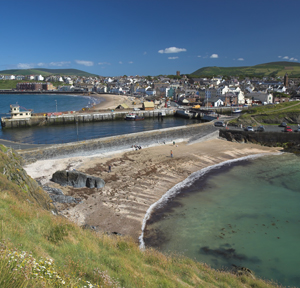Fund Management
INTERVIEW: IoM's Pained Fund Sector Needs Rehabilitating, Say Government, Wealth Managers

Your correspondent recently attended ISLEXPO, an event hosted on the Isle of Man that focused on business growth and innovation.
Government officials and investment managers based on the Isle of
Man have warned that if its troubled funds industry is not
resurrected, then further assets could be lost to money managers
operating in rival UK Crown Dependencies.
In 2008, prior to the financial tsunami, funds under management
on the Isle of Man hovered around $58 billion. Since then, that
figure has plummeted to just $17.68 billion, according to the
latest data from the Isle's financial regulator.
And this has set alarm bells ringing for both the Manx government
and businesses working in the sector.
“The funds industry in the Isle of Man is hugely challenging,”
said David Long, chief investment officer of Capital
International, an investment management house based on the
island. “Quite frankly, the funds industry here has collapsed in
recent years, and the challenges to resurrect it are very
significant," he told this publication recently.
The decline
Over the past decade, more than $40 billion of assets have been
withdrawn from the Isle's funds sector.
But data provided by the Isle of Man Financial Services Authority
illustrates a path of decline that is not as clear-cut as one
might think.
If we step back just two years to the quarter ended 31 March
2015, there were 345 registered funds with a net asset value of
$20.74 billion.
Fast forward one year to the quarter ended 31 March 2016, and
there were 328 registered funds, but the net asset value of these
increased to $22.24 billion.
Since then, however, the slump has been more evident.
The regulator's latest set of figures showed that as of 31 March
2017, there were just 288 registered funds with a net asset value
of $17.68 billion, a 20.5 per cent cash decline
year-on-year. Since the economic meltdown of 2008, the
decline has been staggering, as the net asset value of the Isle's
funds sector has plunged 70 per cent.
Challenges ahead
Nick Preskey, high net worth individual strategy manager at the
Isle of Man government, recently spoke to this publication on the
sidelines of ISLEXPO, a conference hosted on the island, about
the hurdles facing the Manx government as it tries to revive its
depleted funds sector.
“The funds industry is a really difficult place for us at the
moment,” he said. “One of the key factors is VAT. All [fund
management] fees attract VAT [on the Isle of Man], and I think
this is what makes Guernsey particularly attractive because it
doesn't charge VAT. So effectively, there is a 20 per cent
discount on what is charged there.”
Preskey said the issue is “on the radar” of the
government and that it has commissioned a report examining
the sector, the results of which are expected to be published in
around a month's time.
Regardless of the report's findings, he admitted that certain
obstacles, like the VAT issue, are difficult to overcome, and
that “it will take a while before we can work out how to deal
with the issues”.
“[The government] wants to spur the sector, but, in truth, I
don't know how we could get around the VAT issue,” Preskey said.
“One thing being talked about is a carve-out for VAT, but how
that would look in reality and how it would be viewed elsewhere I
don't really know.”
He added: “Sometimes there is simply a limit to how much we can
do.”
But Capital International's Long has argued that a lack of effort
from the Isle's financial regulator to stimulate the sector could
be stymieing its revival.
“I don't think there is the regulatory or political appetite to
drive the funds industry on the Isle of Man – they're seen as too
high risk,” Long said.
Brexit is another issue the Isle of Man is grappling
with.
As
reported by this news service earlier this month, the Isle of
Man's Chief Minister Howard Quayle has been liaising with
figureheads from the UK government since he took up his post last
October to ensure the crown dependency “has a voice” in Brexit
negotiations.
Although the Isle of Man is not part of the European Union, the
UK's divorce from the bloc will inevitably throw up questions
marks, as the island's current entitlement to freely move goods
within the EU cannot be guaranteed after Brexit.
And this may not bode well for the funds sector, according to
Long.
“I have my doubts as to whether Brexit will spur the funds
industry,” he said. “But I think it is imperative that the Isle's
regulatory regime is equivalent and should have equivalent status
with the rest of the EU.”